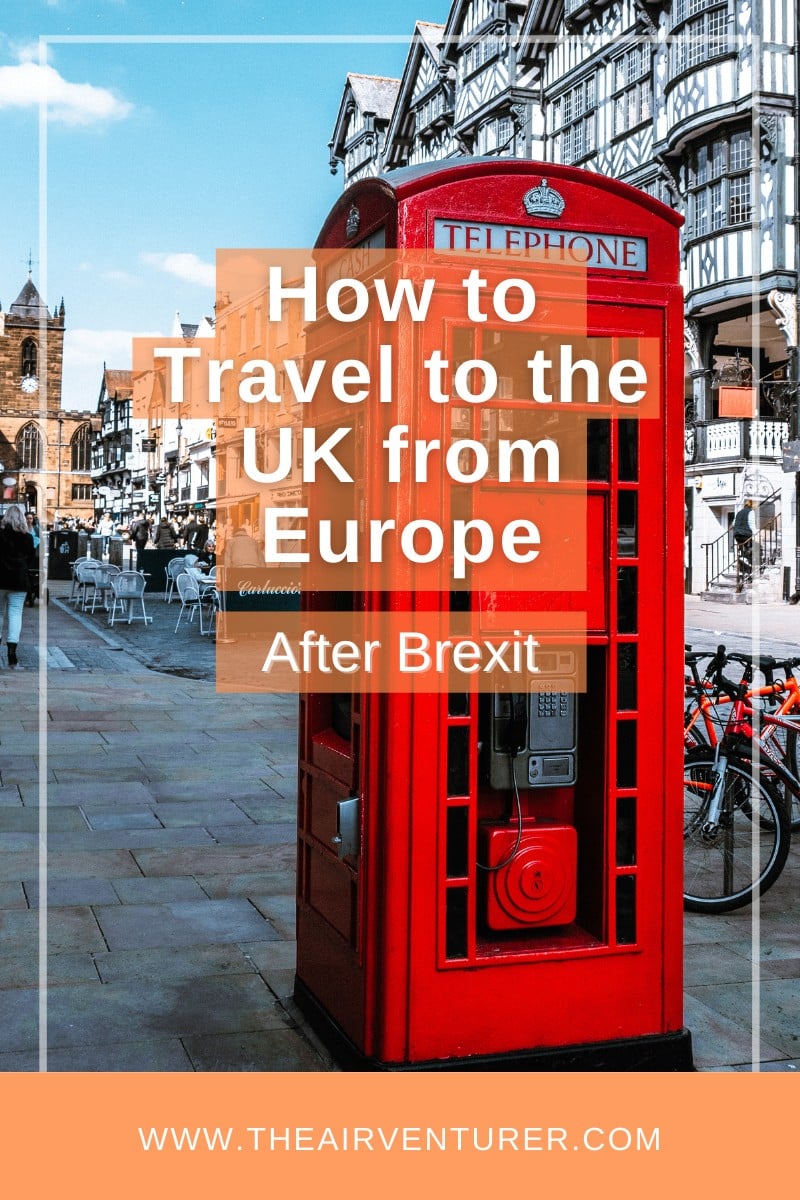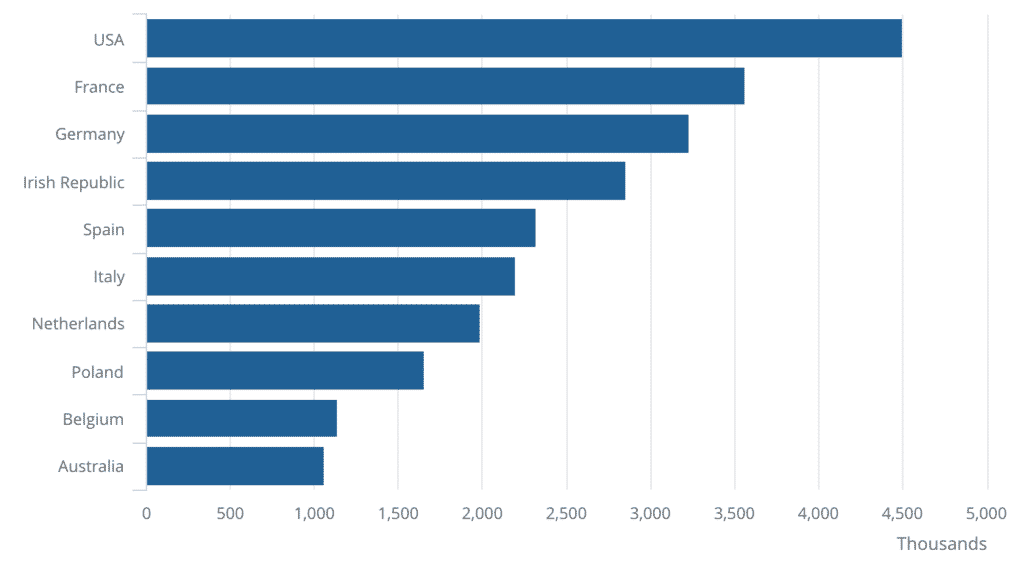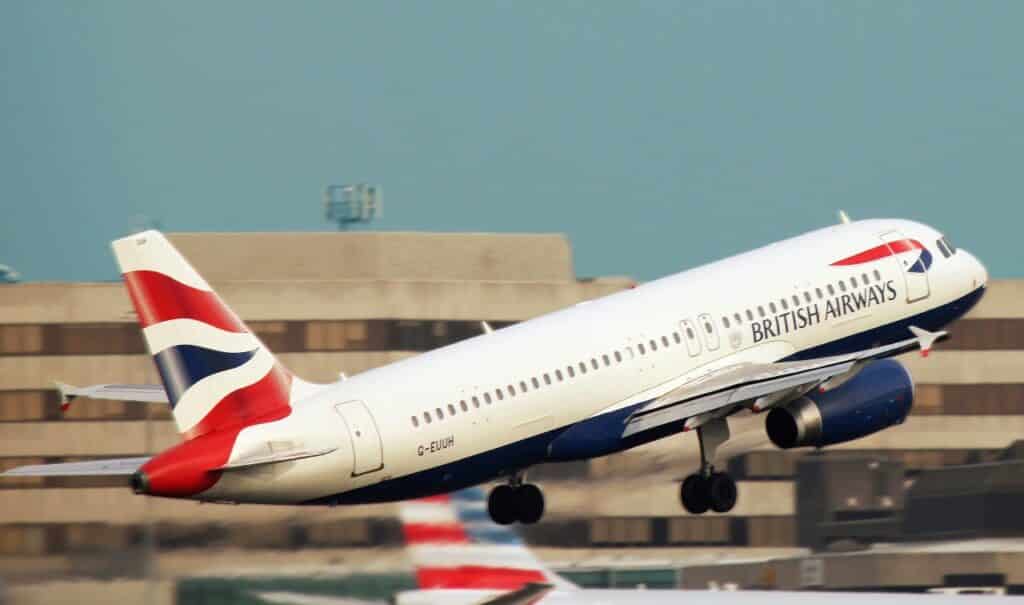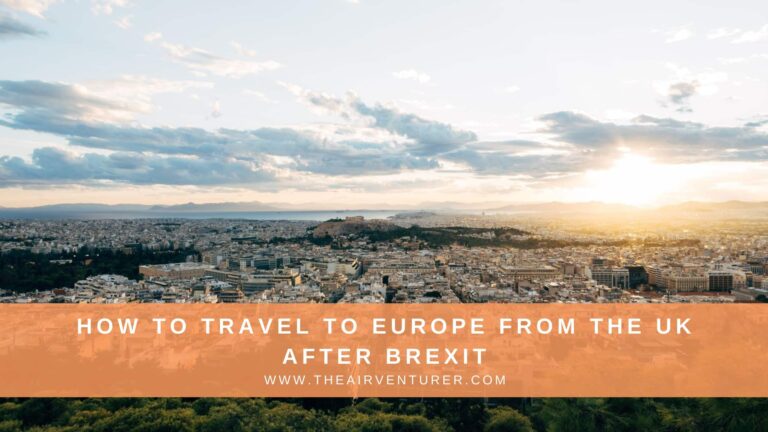Brexit changed how citizens of the EU, EEA and Switzerland can travel to the United Kingdom
Introduction
I know that for the past twelve months Brexit has been the last thing on most people’s minds. I had to remind myself what a big deal it used to be in the news a year ago.

Whatever you may think of Brexit, I am here to make things easy for travelers. Like it or not, it does mean we need to understand the new rules and plan around our individual travel objectives.
In this article I’m going to talk about traveling to the UK as a citizen of the EU, EEA or Switzerland.
If you’re a British citizen please check out my article on How To Travel to Europe From The UK after Brexit.
Why it is important
According to the ONS, in 2019 overseas residents made more than 40 million visits to the UK. The main reason for the visits has been for holidays and the second one was visiting friends and relatives.
This means that people and not businesses alone will have to understand the new rules brought by Brexit.

Source: Office for National Statistics – International Passenger Survey
The largest number of arrivals has been from US residents. However, EU residents represent by far the majority of arrivals into the UK and they are the ones impacted by Brexit.
What changes for you firstly depends on your citizenship
Irish citizens
The current UK Government policy is that Irish nationals will not be affected by Brexit in any way.
Irish citizens can continue to enter and live in the UK, a right that is separate from the UK’s membership in the European Union.
EU, EEA and Swiss citizens
You can travel to the United Kingdom for vacations or short trips without a visa, just using your passport. Your passport must be valid for the entire duration of your stay.
From the 1st of October 2021 you will no longer be able to use an EU, EEA or Swiss national ID card to enter the UK. There are a few exceptions to this rule though:
- You have settled or pre-settled status under the EU Settlement Scheme;
- You have an EU Settlement Scheme Family Permit;
- You have a frontier worker permit;
- You are an S2 Healthcare visitor;
- You are a Swiss Service provider.
If you fall under one of the exceptions listed above you will still be able to use your national ID card to enter the UK until at least 31st December 2025.
No other documents will be accepted and if you don’t adhere to the rules listed above, you will not be allowed to enter the UK.
If you’re not sure if you need a visa, the UK Government’s website has this useful questionnaire to guide you through checking if you need one.
Non-EEA family members of EU, EEA or Swiss citizens
You must have a valid national passport plus one of the following documents:
- an EU Settlement Scheme Family permit;
- a UK-issued EEA family permit;
- a UK-issued biometric residence card.
You will not be able to use an Article 10 or Article 20 residence card issued by an EEA member state.
Traveling for business to the UK

If you are traveling to the UK for business as a citizen of the EU, EEA or Switzerland you may be able to enter the country without a visa. It depends on the length of your stay and what you will do in the UK.
You can participate in business meetings, conferences, industry related events and visits without the need for a visa.
You can stay for up to 6 months during which you may enter the UK multiple times but you cannot live in the UK by means of frequent or successive visits.
The Government’s website does not clearly define what “frequent or successive visits” means.
However, you can access their online guide for visiting the UK for a business trip and get the complete list of activities permitted for visitors.
As a business traveler you cannot work for a UK company (paid or unpaid), work as a self-employed person, you cannot be in a work placement or internship and you cannot sell directly to the public or provide goods or services.
Traveling with commercial goods to the UK
If you travel with commercial goods, basically things you plan to sell, you must declare them to customs.
A full customs declaration is mandatory if you are taking goods that have a total value of £1,500 into Great Britain or £873 into Northern Ireland.
The customs declaration is also needed for goods that are excise, restricted, controlled or goods that weigh more than 1,000 Kg.
Traveling with cash
If you are traveling from the EU to the UK with £10,000 or more in cash (including equivalent in other currencies), you will have to declare it.
You can do this online with up to 72 hours before your trip by making a cash declaration.
You could face a penalty of up to £5,000 if you do not declare your cash or provide incorrect/false information.
Driving in the UK
Licence
You can drive in the UK with a non-UK driving licence, you do not need an international driving permit (IDP).
Insurance
If you plan to drive a vehicle that is not insured in the UK, make sure you comply with the following rules.
If your insurance was issued in the EU, Andorra, Iceland, Liechtenstein, Norway, Serbia or Switzerland you must have a green card or other valid proof of insurance issued by your provider (which should include the name of the provider, number plate and period of insurance).
If your insurance is issued in a country outside of those listed above, you must check if the country is a member of the green card system. If your country is a member, then you’ll need to have a green card, otherwise you’ll need UK vehicle insurance.
Conclusion

There is no reason to be concerned or anxious about the changes Brexit brings for travel. We just have to plan a bit better and be prepared.
In the beginning there may be some issues particularly related to the movement of goods and provision of services.
Travelers seeking to discover new places and experience different cultures will still be able to do so with ease.
Although the queues or procedures upon arrival might take a bit longer, travel still is the best thing you can do to grow and bring meaning to the World around you.
What to read next
- How To Travel to Europe From the UK after Brexit
- What Is Ethical Travel and How To Be an Ethical Tourist
- How to Choose a Frequent Flyer Programme
- Covid-19 Safer Travel Guide
Do you have any further questions regarding How to Travel to the UK from Europe after Brexit? If so, please drop them as a comment below.
Do please share this post if you found it useful and remember to always seek personal growth by exploring the World responsibly.








